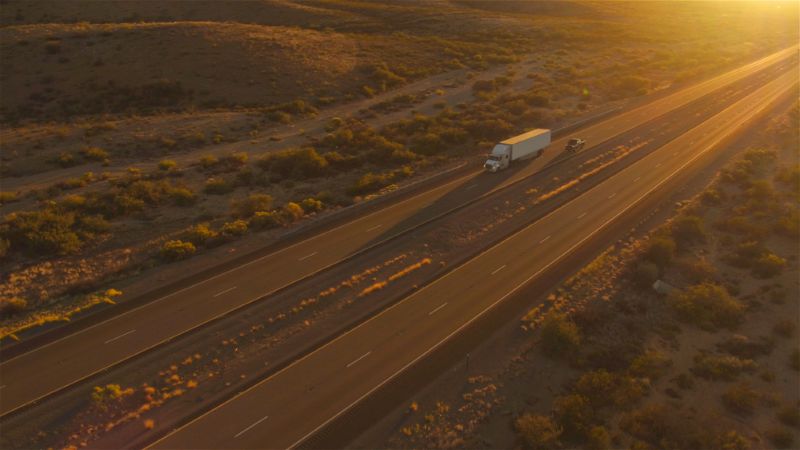Truck accidents in New York often result in devastating injuries and complicated legal battles. Unlike typical car accidents, determining fault in a truck crash involves more than just the driver. Commercial trucks operate under federal and state regulations, and multiple parties may share responsibility when something goes wrong. For victims, identifying all liable parties is critical because it can increase the chances of full compensation for medical expenses, lost wages, and pain and suffering. Here is a closer look at who may be held liable after a truck accident in New York.
The Truck Driver
In many cases, the truck driver is the first party examined after an accident. Drivers may be held liable if they engaged in negligent behavior such as speeding, driving under the influence, texting while driving, or violating hours-of-service rules that limit how long they can be on the road without rest. Fatigue and distraction are two of the most common causes of driver-related truck accidents.
However, the driver is rarely the only responsible party. Most commercial drivers operate as employees or contractors of larger companies, and their actions often tie back to employer responsibility as well. This is why investigations usually extend far beyond the individual driver.
The Trucking Company
Trucking companies can often be held liable for accidents involving their vehicles. Employers are responsible for hiring qualified drivers, ensuring proper training, and enforcing safety standards. If a company cuts corners to save money or fails to monitor compliance with safety regulations, it may share responsibility for a crash.
Examples of trucking company negligence include pressuring drivers to meet unrealistic delivery deadlines, failing to maintain vehicles, or hiring drivers with poor safety records. Under the legal principle of “vicarious liability,” companies may also be held responsible simply because the driver was acting within the scope of employment at the time of the accident.
Maintenance Providers
Trucks require regular maintenance to operate safely. Brake systems, tires, steering components, and lights must all be in proper working order to prevent accidents. If a maintenance provider failed to perform repairs correctly or overlooked critical issues, they may be liable for the crash.
For example, if a mechanic ignored worn brake pads or improperly installed tires, the maintenance company could share fault in the accident. These cases often involve expert testimony to show how maintenance failures contributed to the collision.
Truck and Parts Manufacturers
Sometimes, a truck accident occurs because of a defective part rather than driver or company negligence. If a truck’s brakes, tires, or other components were defectively designed or manufactured, the company that produced the part may be held liable under product liability law. Similarly, if the truck itself contained design flaws that made it unsafe to operate, the manufacturer could be responsible for damages.
These claims require detailed investigation and often involve reviewing recall notices, engineering reports, and accident reconstruction. While more complex, they are important because product defects can place many lives at risk beyond a single accident.
Cargo Loaders and Shippers
Improperly loaded or secured cargo is a major cause of truck accidents. When freight shifts during transit, it can cause a driver to lose control, leading to rollovers or jackknife accidents. Overloaded trucks also require longer stopping distances, which increases the risk of rear-end collisions.
If a third-party cargo company failed to load or secure goods properly, that company may be held liable for the accident. In some cases, shippers themselves may share responsibility if they failed to disclose hazardous cargo or pressured loaders to exceed weight limits.
Other Potentially Liable Parties
Truck accidents are rarely straightforward, and additional parties may be involved depending on the circumstances. For example:
- Government entities: If poor road conditions, unsafe construction zones, or inadequate signage contributed to the accident, local or state governments could share liability.
- Contractors and third-party vendors: Large trucking operations often outsource responsibilities such as background checks, safety inspections, or dispatching. If these companies failed to perform their duties correctly, they may also face claims.
Because multiple parties may be responsible, victims benefit from thorough investigations that look beyond the surface of the crash.
Why Identifying All Liable Parties Matters
Determining liability in a truck accident is not just about assigning blame—it directly affects the amount of compensation available to victims. Truck accidents often cause catastrophic injuries that require extensive medical treatment and long-term care. Relying on only one defendant, such as the driver, may not provide enough coverage to pay for these costs. Expanding liability to trucking companies, maintenance providers, or manufacturers increases the likelihood that victims can recover full and fair compensation.
Our truck accident attorneys in Kingston investigate every possible angle, gathering evidence such as driver logs, maintenance records, and cargo documents to identify all responsible parties. This comprehensive approach is essential in maximizing recovery for injured victims.
Holding the Right Parties Accountable
Truck accidents in New York often involve multiple layers of responsibility, from individual drivers to large corporations. Understanding who can be held liable is key to building a strong case and securing the compensation you deserve. Because these cases require detailed investigation and knowledge of state and federal trucking laws, working with experienced legal counsel is critical.
If you or a loved one has been injured in a truck accident, you do not have to face the process alone. To learn more about your rights and how we can help, contact us today. We are committed to holding negligent parties accountable and fighting for the justice and compensation you need to move forward.

